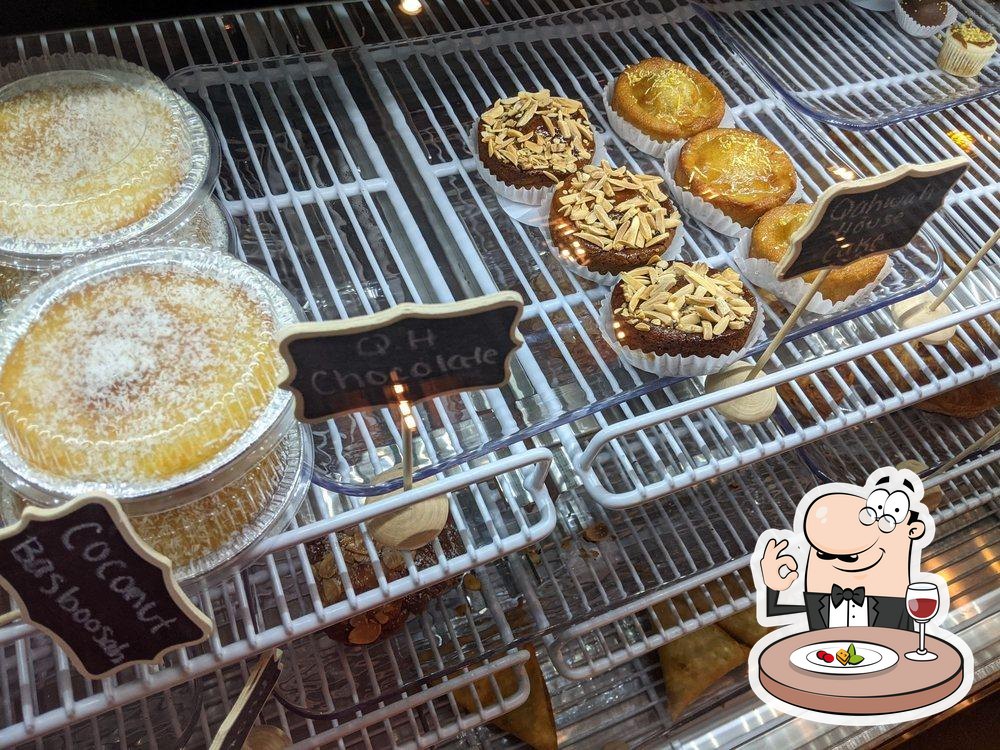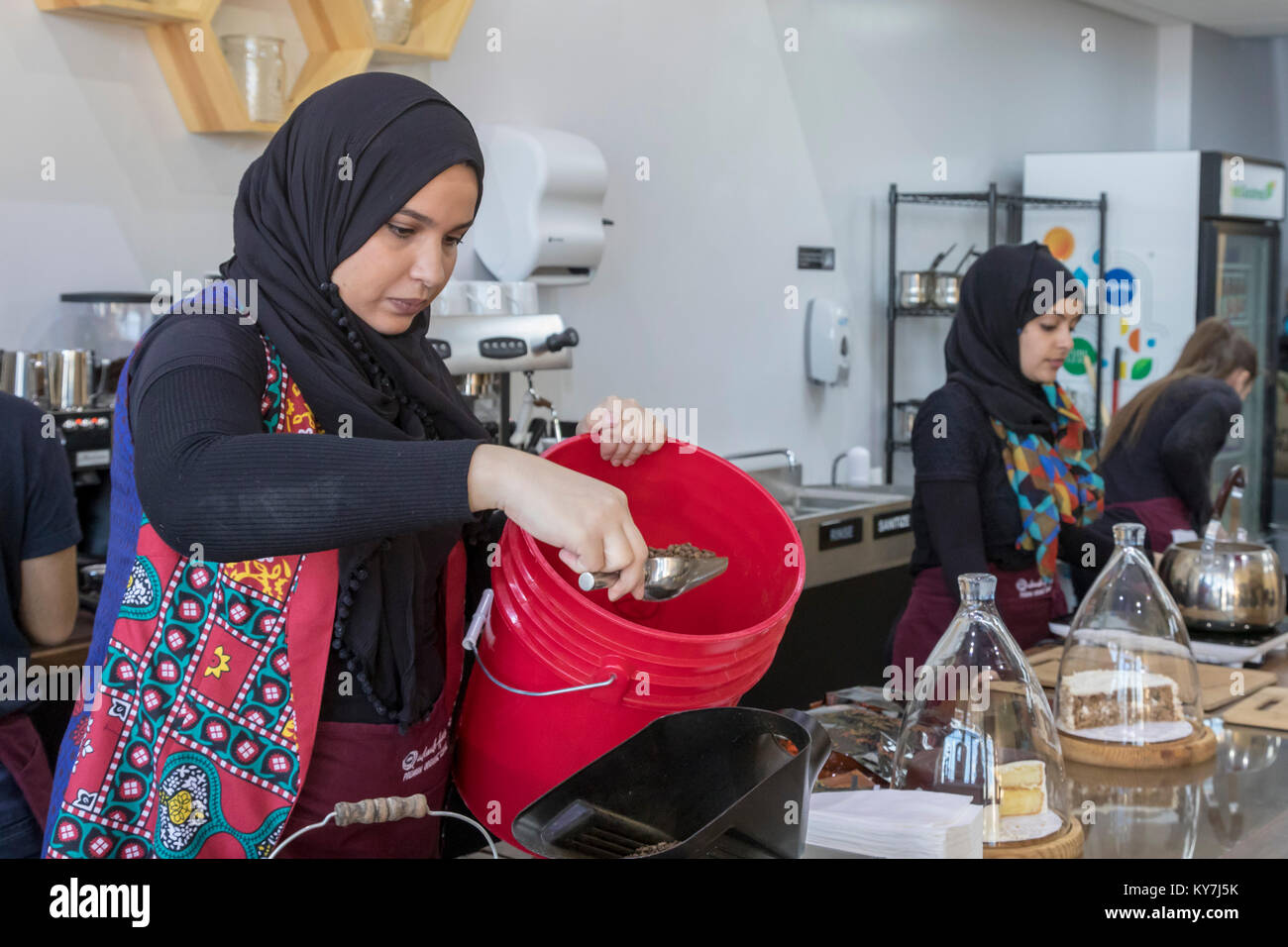Table Of Content

Waell Ali, co-owner of the newest Clifton branch in New Jersey, lives in New York and has been friends with Ibrahim since before the founding of Qahwah House. Waell started getting involved when the Brooklyn branch opened around three years ago. The place fills up with the sounds of Arabic music playing in the background, people catching up with old friends and making new ones or meeting with a potential spouse, and families playing card games. “We receive the Yemeni green beans from our warehouse in Michigan that we roast weekly — so our concept is not just freshly brewed, but freshly roasted as well,” Jaffery says. Soon Yemen became the center of coffee export with trade running from the Indian Ocean into the gulf — a depiction spelled out on a large map on the wall opposite the service counter at Qahwah House in Lombard. The caffeine in coffee would help the Sufis get into elevated spiritual “highs,” Morris adds.
DARK RoasT
"They go beyond coffee. If there's a conversation, the staff know a lot about the product, the history of the coffee, where the beans are coming from. The first time Husam Kaid tried Adeni chai (Yemeni tea) at Qahwah House, it reminded him of Yemen. One sip and he was reminiscing about Ramadan nights in the old city of Sanaa.
Yemeni Coffee Shop Opens Late-Night Cafe Hangout In West Village - Patch
Yemeni Coffee Shop Opens Late-Night Cafe Hangout In West Village.
Posted: Thu, 13 Jul 2023 07:00:00 GMT [source]
Qahwah House: A Yemeni cafe bringing New Yorkers together, one sip at a time
Customers can also indulge in pastries such as sabaya, a flaky layered bread cake popular in Yemen. “When we open more locations, we create more opportunities for jobs here and also back in Yemen,” he says. Qahwah House sources its coffee beans directly from Yemen, which creates opportunities for coffee farmers. But for the coffee that Ibrahim Alhasbani pours at Qahwah House in Dearborn, “origin” means much more than where the beans came from; it also refers to his own origin story.
This Halloween, Michigan's trick-or-treaters deserve better
It’s an experience to watch, and if you’re the kind of person who likes to film vertical video of food and beverages, there’s no shortage of engaging content to be made here. Most of the drinks are served by the pot, with a tealight candle in the base to keep it warm, and multiple small cups. At the Clifton Qahwah House, the beans are ground and served in light and medium roasts used in aromatic cups of coffee, or in coffee drinks like lattes, cappuccinos and espressos.
COLUMBUS — Abdelrahman Yasen, a former employee of Qahwah House in Dearborn, has opened his own franchise in Columbus, Ohio with his brother Abdalziz, expanding the franchise to a new state. Located at 189 E Main Street, Columbus, Ohio, the coffee shop will be open to the public in roughly four weeks. A neat feature to Yemeni coffee is that the beans are naturally sweet, and sometimes they consist of fruity notes like mango. Both the tea and coffee served can include added spices, depending on what the customer wants. The pride for his family, home country, and the history of the Yemeni coffee bean all fuel Alhasbani’s passion for running a café.
Qahwah House, featuring Yemeni coffee and pastries, opens in Skokie - Yahoo Finance
Qahwah House, featuring Yemeni coffee and pastries, opens in Skokie.
Posted: Fri, 21 Jul 2023 07:00:00 GMT [source]
The baristas, unofficially called Yemeni station masters, have to keep a close eye on the pots of chai and coffee so they don’t boil over, especially when several kettles are roiling at once. If you go to someone’s house in Yemen, the first thing they give you is coffee — it’s a big deal. If someone doesn’t offer you coffee, there’s something wrong,” he says, with a laugh. Coffee always had a social quality to it, Um said, adding that coffeehouses could be found in major cities like Cairo, Istanbul and Damascus by the mid 1500s. The drink also had detractors, who thought it could inspire radical ideas or seditiousness because of its social character, she said. The beans at Qahwah House are plucked from the farm that his family has owned and operated for eight generations in Sanaa, the Yemeni capital.
Eastern Market, Detroit
He grew up around coffee and believes the best beans are from Yemen. The burlap bags of coffee stacked around the shop coupled with images of Alhasbani and his family’s farm conveys the farm-to-cup concept that ensures the quality of the coffee is controlled by those who grow it. Yemeni farmers would grow coffee in the mountains around Sanaa, while the merchants readied it for export at the Yemeni port of Mocha, a city on Yemen’s western coast that borders the Red Sea, Morris says.

And for many of the young Muslims and Arabs in New York, Qahwah House serves as a place of community - a place where they can get a taste of the place many of them yearn to be in. According to its founder Ibrahim, Qahwah House plans on expanding to 20 additional locations this year and eventually expanding outside the US in Canada and Europe. Ibrahim’s goal was to create a space that was welcoming for everyone, and not just one type of customer, though many customers are Muslim or Arab (or both). Although many people doubted his idea, Ibrahim believed in it and in himself and invested a lot of his own savings to start Qahwah House.

She is an avid traveler, and her favorite way to explore a new place is through its local coffee scene. Originally, we are from Yemen where we were born and raised amidst coffee plants.Our expertise originates from a long line of ancestors, all committed to the tradition and innovation of coffee. The best quality coffee with no added preservatives, artificial additives, or flavors.
After trying the delicately spiced, intensely flavorful brews at their Williamsburg location, which opened in November 2020, it’s easy to understand why he felt the need to bring Yemeni-style coffee stateside. Qahwah House (qahwah meaning coffee in Arabic) is a Yemeni coffee shop which brings people together in its locations in Dearborn, the greater Chicago area, New York, and most recently, New Jersey. Dearborn has a diverse population, and all were very supportive when I first opened and still are! I’m actually very glad that I opened my first coffee shop here in Dearborn!
The bars, restaurants and coffee shops that surround the market are available to feed visitors year-round. Visiting this warehouse district where buildings are painted with murals by local and global artists and live music often echoes throughout the streets is a must. The only American city with an Arab majority, Dearborn’s dining scene is rich with Middle Eastern and Mediterranean restaurants of various cultures.
My advice is to always drink it black so you can taste our delicious coffee, not the cream and sugar. With this situation in Yemen it’s hard to bring coffee beans to the U.S.A. It’s a challenge, but you have to take a risk. A Yemeni immigrant, Ibrahim has been roasting and brewing coffee in Dearborn for two years. But not just any coffee—he imports all his beans directly from his own family farm that he grew up on in Yemen. With political disturbances in Yemen, Ibrahim has had his fair share of challenges in importing, but he perseveres.
No comments:
Post a Comment